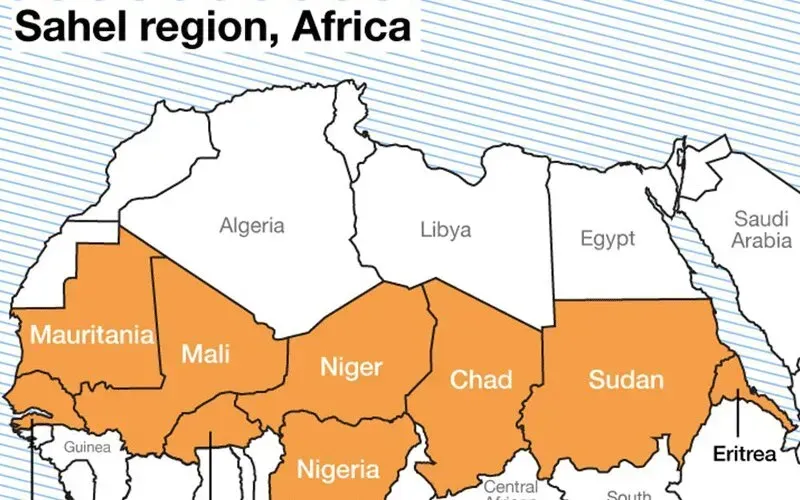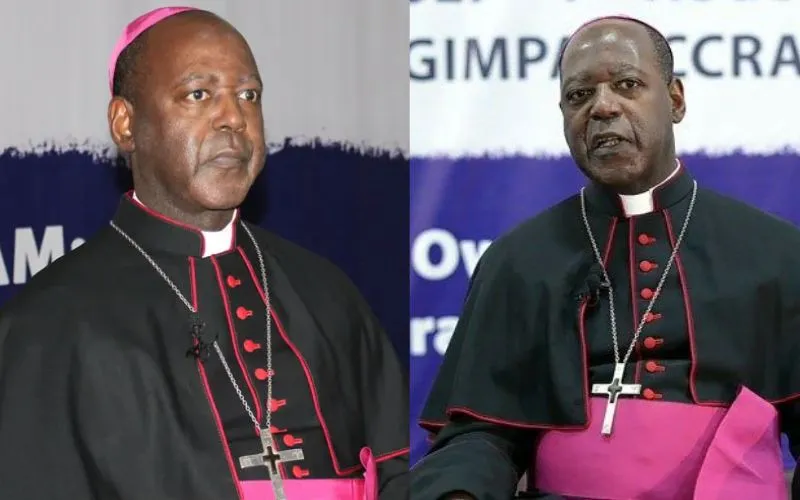As a minority group, Christians in Niger “lack a voice,” Fr. Mark shared, and added, “We are always having to fight for our freedom to express our Christian faith.’
“Niger generally doesn’t have radical Islam. But once in a while, you come across a Muslim preacher who uses terms such as ‘Infidels’ or unbelievers,” he said.
The Priest recounted the January 2015 wave of attacks in Niger following the Charlie Hebdo incident in France where Christians were targeted in the West African country.
“Local Muslims here went on a rampage, destroying Churches. Our Church in Zinder was flattened. It was only recently that it was rebuilt,” he said, and continued, “Generally, the relationship between Christians and Muslims is peaceful, apart from the occasional atmosphere of suspicion in Diffa that mostly results in religious-based violence.”
Fr. Mark shared that he now a Parish Priest in Koni, some seven kilometers from the Nigerian border. Here, he said, internal conflicts between the Muslim Fulani herders and the Christian Hausa farmers are rife.
(Story continues below)
Also participating in the December 1 PACTPAN panel discussion were members of the African Synod Digital Youth Faith Influencers (ASDYFI) who explained the impact of religious-based extremism in other countries in the Sahel and the Lake Chad region.
They noted that the Sahel region, which starts from Senegal to the area bordering the Sahara to the north and African tropics to the south, has been a point of clashes for decades, especially between herders and farmers.
Fr. Augustine Anwuchie, a Fidei Donum Priest from Nigeria highlighted the influx of extremism in Northern Mali, with perpetrators coming from Northern African countries bordering the Sahel, including Libya, Algeria, and from Mauritania.
The Lake Chad region encompasses Niger, Nigeria, Chad and Cameroon. Lake Chad, a freshwater lake, has created a rich environment for farmers and herders in these countries.
“Before we started having terrorists in this region, we had smaller clashes of farmers and herders fighting for the rich area,” Fr. Augustine said, and added, “It was only after the formation of Boko Haram in 2009 that the region started having an influx of terrorism in the area. In 2016, the Boko Haram movement had started carrying out attacks in the Lake Chad region.”
He said that today, the Lake Chad region has over 30 million inhabitants belonging to over 70 ethnic groups.
The region, the Nigerien Priest said, has become a hotspot for terrorism owing to neglect.
“The Lake Chad region has been abandoned by the government, making it a haven for gun trafficking. Boko Haram has capitalized on this gap to recruit terrorists and carry out attacks in the region,” Fr. Augustine said.
He added, “ECOWAS countries have weak governance that allows terrorism to thrive. Most of these countries have witnessed coups with militaries and terrorists rising to depose their presidents.”
The Nigerian Priest who serves as the Assistant Parish Priest of Our Lady of Lourdes of Niger’s Maradi Diocese said, “Boko Haram is 30 minutes from the Parish where I am working…People no longer dare to be Christians here.”
In Burkina Faso, the defence forces and civilians are equal targets of the terrorist attacks, Bindre Roger Dayamba, a PhD student of Sociology said.
Dayamba, who serves as the General Secretary of Young Catholics in Burkina Faso said that terrorists in the West African nation thrive on manipulation of the country’s numerous tribes.
“Terrorist groups operate by manipulating the country’s diverse ethnic groups. This way, they get acceptance and capitalize on it,” the member of ASDYFI said, adding that Burkina Faso enjoyed an atmosphere of peace for decades despite having more than 60 ethnic groups.
Statistics indicate that about 63 percent of Burkina Faso is Muslim, followed by Catholics at 20 percent. Protestants account for 7 percent of the Burkinabe population. Another 10 percent adhere to African traditional religions.
Agnes Aineah is a Kenyan journalist with a background in digital and newspaper reporting. She holds a Master of Arts in Digital Journalism from the Aga Khan University, Graduate School of Media and Communications and a Bachelor's Degree in Linguistics, Media and Communications from Kenya's Moi University. Agnes currently serves as a journalist for ACI Africa.








